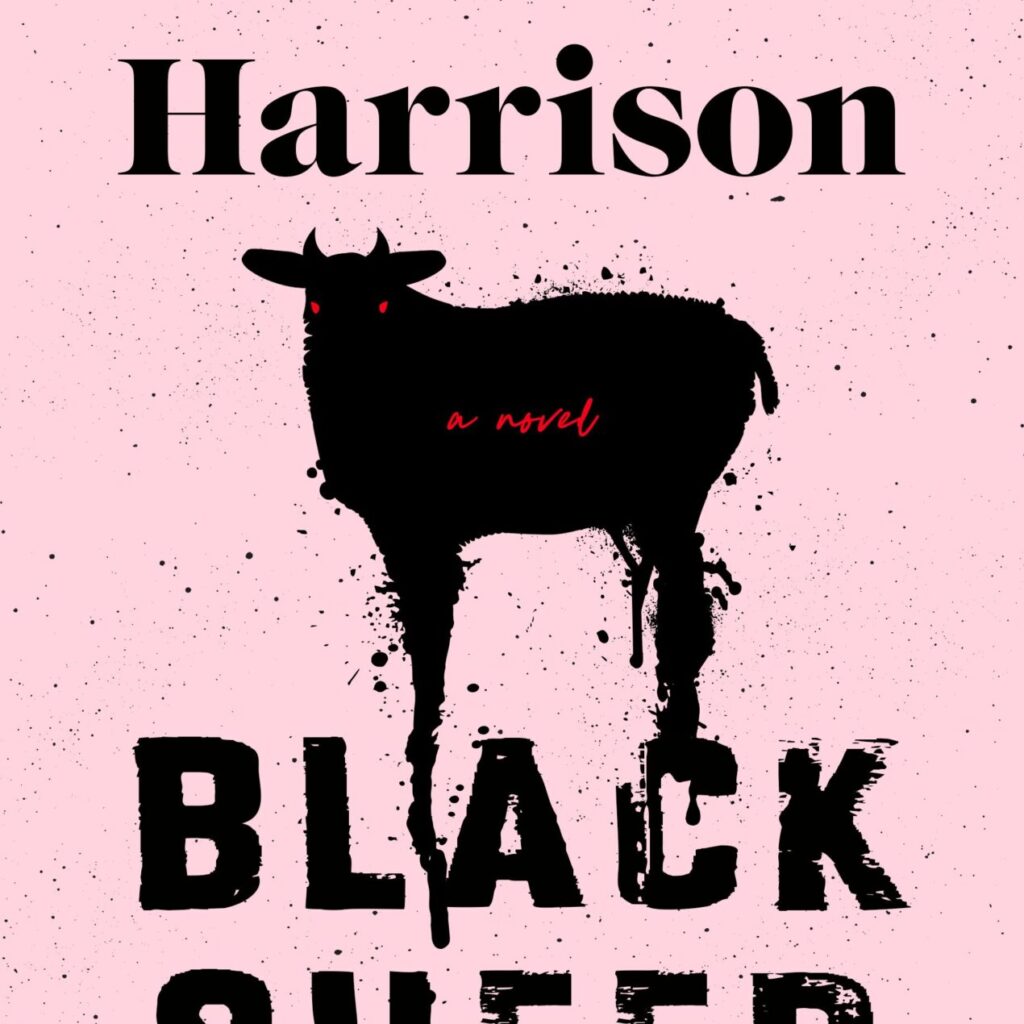
“Black Sheep” by Rachel Harrison is a horror novel that follows Vesper Wright, a cynical twentysomething who must confront her unconventional family’s dark secrets. Vesper left her staunchly religious community at eighteen and never looked back. However, she receives an unexpected invitation to her cousin Rosie’s wedding, which is to be held at the family farm. Despite her reservations, Vesper feels compelled to attend.
Upon returning, Vesper is forced to face her mother, Constance, a former horror film star, and the toxic environment she once escaped. Her homecoming unearths a terrifying secret, leading Vesper to grapple with her family’s beliefs and her own crisis of faith.
Main Characters
Here are the main characters in “Black Sheep” by Rachel Harrison:
- Vesper Wright: The protagonist, a young woman who left her strict religious community and family behind. She returns home for her cousin’s wedding, only to confront dark family secrets.
- Constance Wright: Vesper’s mother, a former horror film star with a complex relationship with her daughter. She embodies the tension between Vesper’s past and present.
- Rosie: Vesper’s cousin, whose wedding serves as the catalyst for Vesper’s return to the family farm. Her character is central to the unfolding events.
Central Conflict
The central conflict in “Black Sheep” by Rachel Harrison revolves around Vesper Wright’s return to her family’s farm for her cousin Rosie’s wedding. This event forces her to confront the dark secrets and toxic environment she escaped years ago. Vesper’s struggle is both internal and external:
- Internal Conflict: Vesper grapples with her past, her family’s strict religious beliefs, and her own crisis of faith. She must reconcile her current identity with the one she left behind.
- External Conflict: Vesper faces her mother, Constance, and the unsettling truths about her family’s history. The tension between Vesper and her family members, especially her mother, drives much of the narrative.
Key Events
Here are some key events in “Black Sheep” by Rachel Harrison:
- Vesper’s Return: Vesper Wright receives an invitation to her cousin Rosie’s wedding and decides to return to her family’s farm, despite her reservations.
- Reunion with Constance: Vesper confronts her mother, Constance, and the strained relationship they share. This reunion brings up old wounds and unresolved issues.
- Wedding Preparations: As the family prepares for Rosie’s wedding, Vesper begins to notice strange and unsettling occurrences around the farm.
- Uncovering Secrets: Vesper delves into her family’s past and uncovers dark secrets that challenge her understanding of her upbringing and beliefs.
- Climactic Confrontation: The tension between Vesper and her family reaches a peak, leading to a dramatic confrontation that forces Vesper to make critical decisions about her future.
Themes
“Black Sheep” by Rachel Harrison explores several compelling themes:
- Family Dynamics: The novel delves into the complexities of family relationships, particularly the tension between Vesper and her mother, Constance. It examines how family history and secrets shape individual identities.
- Faith and Belief: Vesper’s crisis of faith is a central theme. The story explores the impact of strict religious upbringing on personal beliefs and the struggle to reconcile past teachings with present realities.
- Identity and Self-Discovery: Vesper’s journey is one of self-discovery. Returning to her roots forces her to confront who she was and who she wants to be, highlighting the theme of personal growth and transformation.
- Secrets and Truths: The uncovering of family secrets drives the plot. The novel examines how hidden truths can affect relationships and personal understanding.
- Horror and the Supernatural: As a horror novel, it incorporates elements of fear and the supernatural, using them to amplify the emotional and psychological conflicts faced by the characters.
Narrative Style
“Black Sheep” by Rachel Harrison employs a narrative style that is both engaging and atmospheric. Here are some key aspects:
- First-Person Perspective: The story is told from Vesper Wright’s point of view, providing an intimate look into her thoughts, emotions, and experiences. This perspective helps readers connect deeply with her character.
- Descriptive Language: Harrison uses vivid and evocative descriptions to create a sense of place and mood. The eerie atmosphere of the family farm and the unsettling occurrences are brought to life through detailed imagery.
- Psychological Depth: The narrative delves into Vesper’s internal struggles, exploring her crisis of faith and complex family dynamics. This psychological depth adds layers to the horror elements, making the story more than just a series of frightening events.
- Pacing: The novel balances moments of tension and suspense with quieter, introspective scenes. This pacing keeps readers engaged while allowing for character development and thematic exploration.
- Dialogue: The dialogue is natural and reflective of the characters’ personalities and relationships. It helps to reveal character motivations and advance the plot.
Author Point of View
Rachel Harrison, the author of “Black Sheep,” brings a unique perspective to the novel, blending elements of horror with deep psychological and emotional exploration. Here are some insights into her point of view:
- Exploration of Family and Faith: Harrison often delves into the complexities of family dynamics and the impact of religious upbringing. Her portrayal of Vesper’s struggle with her family’s beliefs and her own crisis of faith reflects a nuanced understanding of these themes.
- Character-Driven Horror: Rather than relying solely on supernatural elements, Harrison focuses on the psychological aspects of horror. Her characters’ internal conflicts and emotional journeys are central to the narrative, making the horror elements more impactful.
- Empathy and Realism: Harrison’s writing is marked by empathy for her characters. She portrays their flaws, fears, and strengths in a realistic manner, allowing readers to connect with them on a deeper level.
- Atmospheric Storytelling: Harrison’s descriptive language and attention to detail create a vivid and immersive atmosphere. Her ability to evoke a sense of place and mood enhances the overall reading experience.
- Blending Genres: Harrison skillfully blends horror with other genres, such as psychological thriller and family drama. This approach adds depth to the story and appeals to a broader audience.
Psychological Impact
“Black Sheep” by Rachel Harrison has a profound psychological impact on readers, driven by its exploration of deep emotional and mental themes. Here are some key aspects:
- Internal Struggles: Vesper’s internal conflict, particularly her crisis of faith and identity, resonates with readers who have experienced similar struggles. Her journey of self-discovery and reconciliation with her past can evoke strong emotional responses.
- Family Dynamics: The complex and often toxic family relationships depicted in the novel can trigger reflections on readers’ own familial experiences. The tension between Vesper and her mother, Constance, highlights the impact of unresolved issues and secrets within families.
- Atmospheric Tension: The eerie and unsettling atmosphere created by Harrison’s descriptive language heightens the sense of dread and suspense. This can lead to a lingering feeling of unease, even after putting the book down.
- Themes of Isolation and Belonging: Vesper’s feelings of isolation and her search for belonging are universal themes that many readers can relate to. The novel’s exploration of these themes can prompt introspection and empathy.
- Psychological Horror: The horror elements in the novel are not just about supernatural occurrences but also about the psychological terror of confronting one’s deepest fears and traumas. This adds a layer of psychological complexity that can be both thrilling and unsettling.
Personal Reflection
Reflecting on “Black Sheep” by Rachel Harrison can be a deeply personal experience, as the novel touches on themes that resonate with many readers. Here are some points to consider for a personal reflection:
- Family Relationships: Think about your own family dynamics. Are there any parallels between Vesper’s relationship with her mother and your own familial relationships? How do family secrets and unresolved issues impact your life?
- Faith and Belief: Reflect on your personal beliefs and any crises of faith you may have experienced. How do Vesper’s struggles with her religious upbringing and her journey towards self-discovery resonate with your own experiences?
- Identity and Growth: Consider your journey of self-discovery. Have you ever felt the need to distance yourself from your past to find your true identity? How do Vesper’s challenges and growth mirror your own path?
- Confronting Fears: The novel’s horror elements can be a metaphor for facing one’s deepest fears and traumas. Reflect on any fears or traumas you have confronted in your life. How did you overcome them, and what impact did they have on your personal growth?
- Sense of Belonging: Vesper’s search for belonging is a central theme. Reflect on your own sense of belonging. Where do you feel most at home, and what communities or relationships make you feel accepted and valued?
Read More eBooks
The Serial Killer Guide to San Francisco
“Nat Turner, Black Prophet” by Anthony E. Kaye, Gregory P. Downs eBook Review
Read Keeping the Faith by Brenda Wineapple eBook Review
17 Years Later by J.P. Pomare eBook Summary

